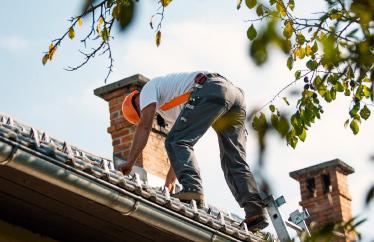Whatever you’ve collected over the years — whether it’s jewelry, family heirlooms, art pieces or stamps — it’s important to keep track of the value of your possessions. Most people visit a local antique shop or dealer to determine how much their collectibles are worth. While there are a number of methods you can use to assess your valuables, visiting a certified and accredited appraiser is your best bet.
Find an appraiser
The key to finding an appraiser you can trust is ensuring that the individual does not have an interest in purchasing your valuables.CLICK TO TWEET
In fact, from an ethical standpoint, it’s inappropriate for an appraiser to make an offer to purchase an object they have appraised. You should also avoid selling your items to an appraiser. This could present a conflict of interest and you could end up with a low valuation.
There are a few major appraiser associations:
- Appraisers Association of America: In addition to working with corporate and private art collections, the Appraisers Association appraisers team up with different professionals and organizations, including museums, educational institutions, insurance carriers and brokers. Members must be certified and meet the highest professional standards.
- International Society of Appraisers: According to its website, the International Society of Appraisers is the largest of the professional personal property appraisal associations for experienced independent appraisers throughout North America. ISA is a not-for-profit association. Its members include consultants, curators, appraisers, dealers and gallerists, among others.
- American Society of Appraisers: The American Society of Appraisers is a non-profit, international organization representing all appraisal disciplines, including personal and real property, appraisal review and management, business valuation, gems and jewelry and machinery and technical specialties.
- Yelp: Sometimes you need to get back to the basics. Yelp has an extensive database of local appraisers who are rated by the Yelp community for quality and reliability.
To sell your possessions, you need to know their fair-market value (or how much a buyer would pay for those items in today’s market). For insurance purposes, you need to know the retail value of your possessions (or how much it would cost to replace them).
Appraisers often request that you email an image of your valuable so they can determine whether you need to pay for a professional appraisal.
If you have an item appraised, you will receive a full written report that includes a complete description and explanation of how the estimate of its current value was determined. This service will either cost a flat fee or an hourly rate from $150 up to $400 or more depending on where you live and the kind of property you’re having appraised.
Key item appraisals
Below you will find some excellent resources to track down local appraisers or find specialists.
- Jewelry: Gemworld can help you find an appraiser to assess your new jewelry, diamonds, pearls, estate jewelry or colored gems. You can also visit the National Association of Jewelry Appraisers website and use drop-down menus to find appraisers in your state who specialize in evaluating certain types of jewelry.
- Cameras: Local camera shops might be able to estimate the value of your camera. However, if you have an older camera, check out antinquecameras.net. For $5 or $12, you can find out when your camera was built and its current market value.
- Musical Instruments: Besides the American Society of Appraisers, another great resource for anyone needing an appraisal for a musical instrument is A&D Music in Laguna Beach, California. An appraiser will either travel to you or connect you with a qualified technician in your area
- Fine Art: Through artappraisersofamerica.com, you can search for art appraisers in your city and state.
- Sporting Memorabilia and Equipment: If you have sports memorabilia, consider Nugent Appraisal Services. It has locations in multiple U.S. cities. If you have sporting equipment, check out local sporting goods shops that specialize in appraising the kind of equipment you have. Or swing by Play it Again Sports, which has locations in most major cities.
- Firearms: A great way to assess the value of your own firearms is to review the Blue Book of Gun Values. You can also see how your guns compare to those listed on the Guns International website.
- Furs: Besides visiting the International Society of Appraisers, you might also want to take a look at the Buy My Fur website, especially if you’re interested in selling your fur coat.
- Stamp Collection: The website managed by the American Stamp Dealers Association is a vast repository of information about various types of collections and offers a link to local dealers who can assist you with an appraisal.
- Rare Coins: Contacting a local appraiser may not be necessary when you want to find out how much the coins in your collection are worth. Instead, you can visit the Appraise My Coins website. If you’re not sure what kind of coin you have on your hands, check out the Fun Times Guide for tips on locating local coin dealers and what you need to know before you seek an appraisal.
Online resources and valuations
Most appraisers agree that the internet is generally not the best place to get an accurate assessment of the value of your treasures. But if you want a general sense of how much your valuables are worth, here a few online resources:
- Value My Stuff: This website charges $10 for one appraisal and promises to finish the job within 48 hours.
- WorthPoint: These folks charge $20 for a monthly membership that provides unlimited access to their antique and collectible valuations.
- Kovels: You can purchase a Kovels Antiques & Collectibles Price Guide that reports recent prices paid for more than 1 million items sold through Europe, Canada and the United States. There is a free basic membership package that provides access to the online price guide. Or you can purchase a premium subscription for $39 or $60 per year.
Do your due diligence
Personal and family treasures can either be worth a lot of money or not much more than their sentimental value. Doing your due diligence is necessary to determine the value of all of your collectibles when you’re interested in selling or insuring your property.




